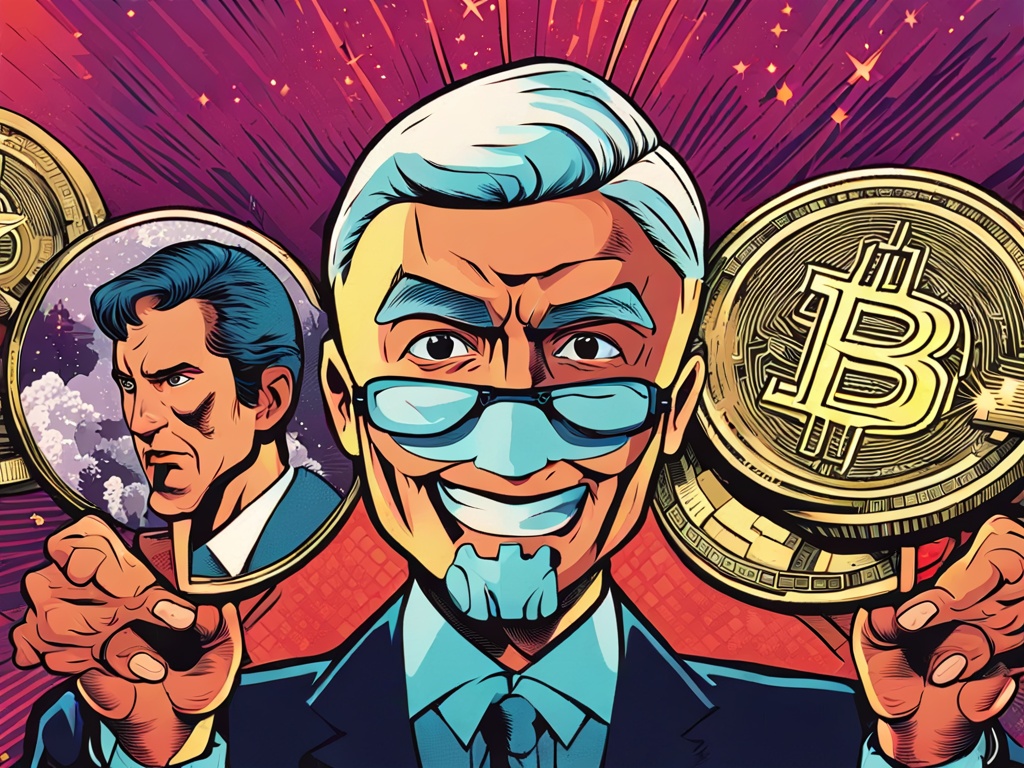Is the U.S. Crypto Market Facing a Major Overhaul?
Imagine you’re at your favorite coffee shop, casually discussing the latest trends in cryptocurrency with friends. Suddenly, someone brings up rumors about the government cracking down on crypto banks. Everyone’s attention darts to you, and you can feel the curious eyes. This new scoop about U.S. financial regulators seems to have everyone on edge. Is crypto really under fire, or is this just another overblown drama?
Let’s dive in, my friends!
Key Takeaways
- The FDIC’s internal communications suggest a coordinated effort to limit crypto access.
- Attorney John E. Deaton urges Congress to investigate “Operation ChokePoint 2.0.”
- Regulatory actions potentially stifle innovation and hinder lawful crypto businesses.
The Lowdown on Recent Developments
So, here’s what popped up: a redacted report from the Federal Deposit Insurance Corporation (FDIC) has sparked a major conversation around the oversight of cryptocurrency banks. This report outlines how banks were instructed to hit pause on crypto-related services while the FDIC evaluates risks. The crux of the problem lies in Attorney John E. Deaton’s assertion that this isn’t just a precautionary move but an orchestrated effort to marginalize the entire digital asset sector.
Deaton’s not a random guy off the street; he’s a known crypto advocate who even ran for Senate with a pro-crypto agenda. He’s calling this situation “Operation ChokePoint 2.0,” claiming it’s part of a broader political agenda rather than a legal one. Now, doesn’t that just make your head spin? The implications could be vast—not just for the crypto entrepreneurs but for the entire financial ecosystem.
What’s Up with the Critics?
Critics, including Deaton, went as far as saying that this action could lead to a dangerous precedent where regulatory bodies can effectively shut down innovation and enforce laws selectively—without any oversight. Think about it: if agencies can restrict access to banking for a whole sector based on internal policies, what does that mean for our freedom to invest or innovate?
Deaton reminds us that this issue transcends cryptocurrency. It’s about the integrity of our financial institutions and the unchecked powers of unelected officials. If they can flag crypto as too risky, what’s next? Housing? Small businesses? It’s a slippery slope, and it feels like a battle for our economic future.
How to Navigate This Uncertain Terrain
So, what does this mean for you, the potential investor or crypto enthusiast? Here are some practical tips to help you stay savvy in these ever-changing waters:
-
Diversify Your Investments: If the regulatory landscape is uncertain, don’t put all your eggs in one digital basket. Explore various investment avenues like traditional stocks, bonds, and even alternative assets.
-
Stay Updated: Knowledge is power! Follow credible news sources and join communities that intently discuss regulatory updates. This way, you can respond quickly to any legislative changes that could impact your investments.
-
Consult Experts Before Major Moves: If you’re thinking about making a sizeable investment in crypto, it’s wise to consult financial advisors who specialize in crypto. They might provide valuable insights specifically tailored to your financial situation.
- Be Mindful of Regulatory Changes: Given the potential crackdown, consider having a contingency plan. Ensure your holdings are in secure wallets, and be prepared for possible transitions if regulations shift dramatically.
Personal Insights and the Bigger Picture
Honestly, the idea that regulatory bodies can exert so much influence has me feeling a mix of skepticism and concern. Remember how quickly things moved in 2020 with all the economic changes? The crypto space saw a massive influx of investors as people sought to diversify against traditional market risks. However, now it seems like we’re facing hurdles set up by the very institutions designed to protect us.
I can’t help but think about our aspirations as a generation, craving financial autonomy and innovation. Our world is evolving, and cryptocurrency is a huge part of that evolution. But we also have to ask ourselves: Are regulatory pressures going to limit our opportunities for growth, or can we find a way through these challenges?
Closing Thoughts
As we ease into the future of finance, the real question is: Will our dreams of a decentralized economy crumble under political scrutiny, or can we rally together to push back against these challenges? It’s a tough call; we must stay engaged, educated, and resilient. After all, the crypto world is not just numbers on a screen or speculative assets—it’s about creating new possibilities for our financial future.
What do you think? Can this young sector withstand the pressures of bureaucracy, or are we headed toward a major disruption?




 By
By
 By
By

 By
By
 By
By
 By
By